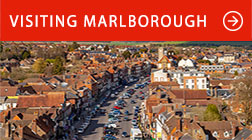
“Because of Queen Victoria” was the answer Valentine Low gave to his interviewer, Mark Palmer at the start of Valentine’s talk on his latest book – ‘Power and the Palace’ when asked “Why?”. Valentine spent fifteen years as the Royal Correspondent of The Times so perfectly placed to be able to observe and comment on that rarely discussed, but vitally important relationship – that between the Monarch and Politicians. Particularly between the King (or Queen) of the day and the Prime Minister. If this sentence had focused on the Victorian era, it would have read ‘and their Prime Minister’. Things have changed in the past century and a half.
Valentine’s ‘Power and the Palace’ has recently been serialised by The Times, his former newspaper so many anecdotes of what happens ‘behind the Royal screen’ will have hit the front pages already. One of his most notable scoops as Royal Correspondent was that of the ‘bullying’ allegations made by staff against Meghan Markle just prior to Meghan and Harry being interviewer by Oprah Winfrey. But this book doesn’t centre on the gossip and headlines, it looks at how the balance in the relationship between Crown and State (Government) has shifted. (Re. Meghan, Mark Palmer claimed, on Valentine’s behalf that there is only one reference to her in the entire book – on p323…!)

In the days of Queen Victoria, the position of Prime Minister was by her decision. ‘Whim’ may have been a better descriptive word as she attempted to chop and change those in that role as she desired. Valentine described the Queen as being “terribly meddlesome, politically”…. “She used to influence who the Prime Minister was, she tried to get ministers sacked, she interfered in and tried to affect Government Policy.” He them immediately contrasted the relationship of Monarch / Government in the days of Victoria to that of the recent relationship, between the late Queen Elizabeth II and her Governments and Prime Ministers. “She made it her life’s work to be above politics”
In the intervening century and a half years he noted that “no-one wrote new rules about what can and can’t be done”. He also noted that it’s something “that no-one talks about”. So not a subject for discussion, or not open discussion, even at probably the most very senior of all levels. The relationship evolves.
Were there any key moments, that effected step change? Valentine noted several but one certainly was the abdication of Edward VIII so that he could marry Wallace Simpson. Churchill’s role here was vital, he had been extremely close to the then Prince of Wales prior to his accession but their relationship had stumbled and disintegrated when it was believed Edward had been less than honest to Churchill. The relationship never recovered. So Churchill was not there to support his former friend when the hour of need arrived.
Valentine outlined not just the number of PMs each Monarch presided over – for Queen Victoria it was twenty, for Elizabeth it was fifteen, and one for just a single (and her final) meeting – with Liz Truss. Elizabeth redefined the role of the Monarch. Head of State, certainly, but not in any way politically involved. Maybe there was some degree of discord at times with some PMs – whilst for Elizabeth the Commonwealth was something so vitally important, for Margaret Thatcher, it wasn’t. Theirs was an interesting relationship, difficult in some respects as it seemed Margaret Thatcher was never quite at ease, but underlying that there was great and growing respect, which came out so clearly when Elizabeth attended Thatcher’s funeral, something that she never did previously. Valentine noted that Elizabeth was possibly closest to Harold Wilson, they ‘clicked’ on a personal level and he related that at Balmoral, about Mary, Harold’s wife doing the washing up with Elizabeth after a barbecue. No rubber gloves, just by hand. He also contrasted this with the Margaret Thatcher experience where being so ‘surprised'(?) by Elizabeth resorting to washing up with no rubber gloves, she later sent her a pair of Marigolds (we assume that was the brand, anyway…).
But that would hardly have been the case in the days of Victoria: Disraeli – probably her ‘favourite’ of all of her PMs – doing the washing up? The relationship did change.
To the current day, and the future. Charles and his PMs – Starmer? An interesting relationship, Valentine noted. Charles was immensely helpful and supportive over the very recent Trump state visit. Not interventional, far from it but helping Starmer and his Government – and this country – work in a productive way with the current POTUS.
A fascinating area for comment and ‘overhead’ view. The shift in how the Monarch and Government relate. Valentine noted that whereas elsewhere in Europe Monarchies had either fallen or disappeared, in this Country they are still there. But whilst other Monarchies had fought or battled with the Political system, here the Monarchy had ceded power rather than cling on to it. To its success and there is a position where it fits, relates and complements.
But he does note that overall the opinion of the people of the UK towards the Monarchy has shifted over recent years. A couple of decades back it was 70% favourable / 20% for a Republic. Now it’s c. 60% favourable / 30% for a Republic. Something that he believed the Palace were well aware of.
‘Power and the Palace’ , by Valentine Low, published by The Headline Group






 LitFest ’25: John Suchet – ‘In Search of Beethoven: A Personal Journey’
LitFest ’25: John Suchet – ‘In Search of Beethoven: A Personal Journey’


